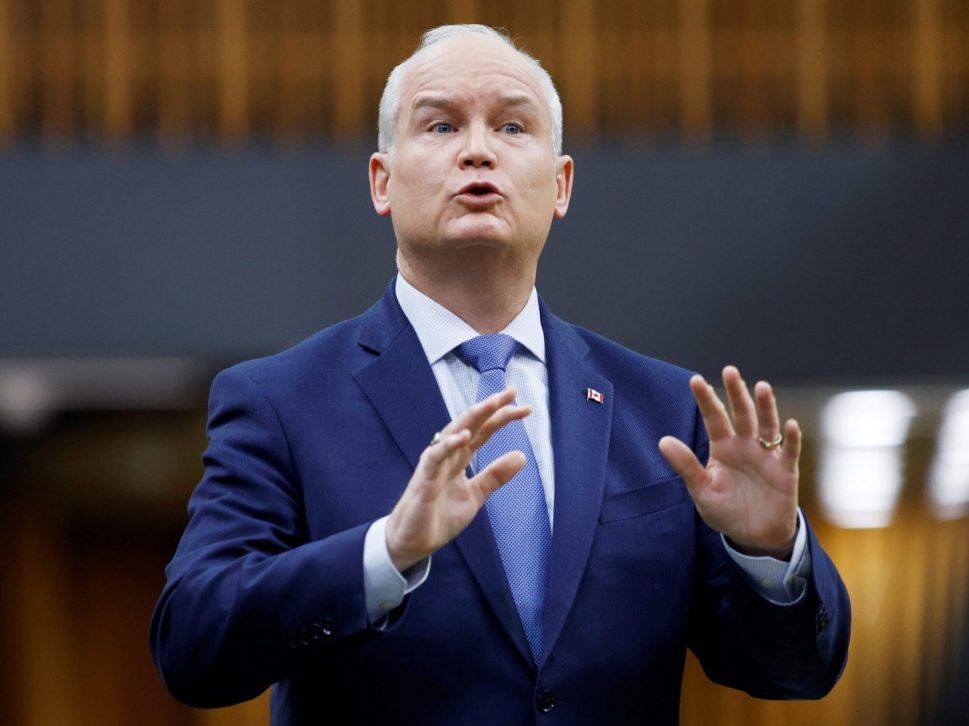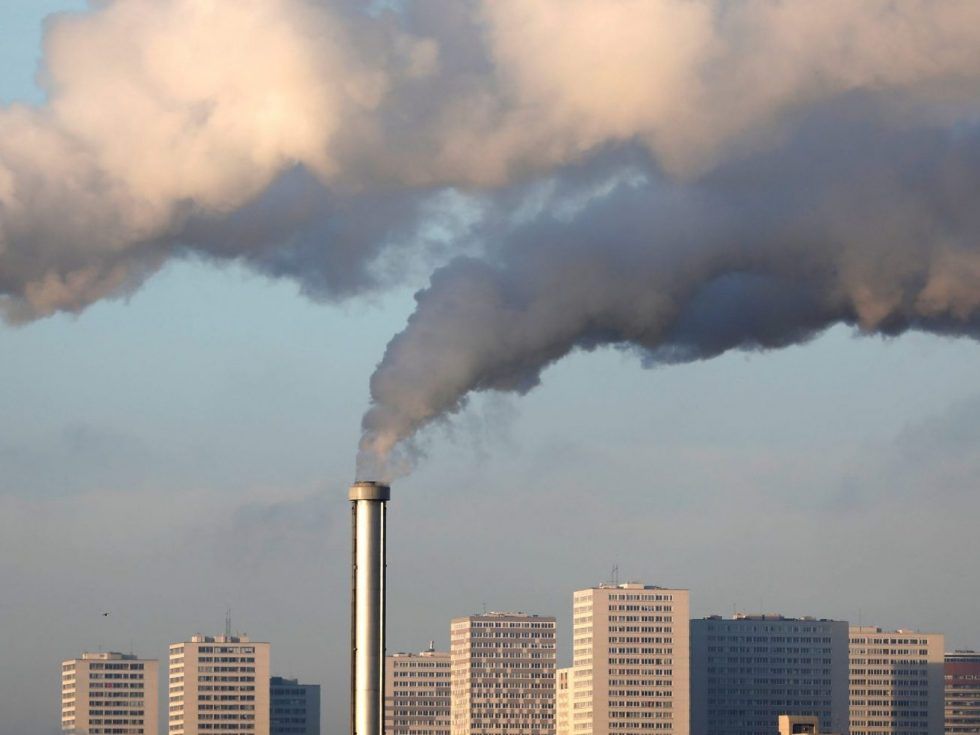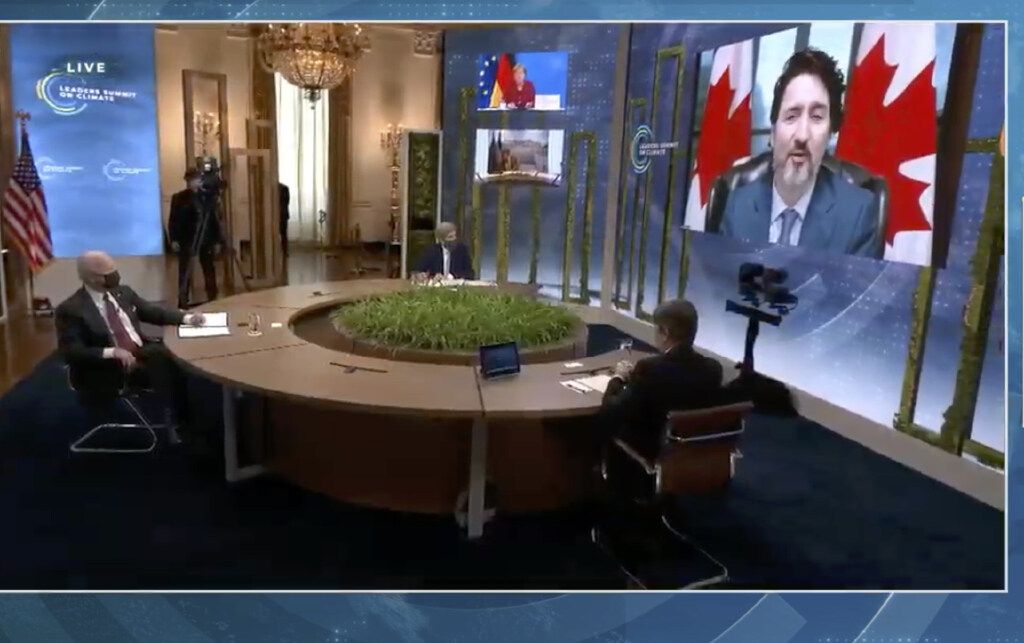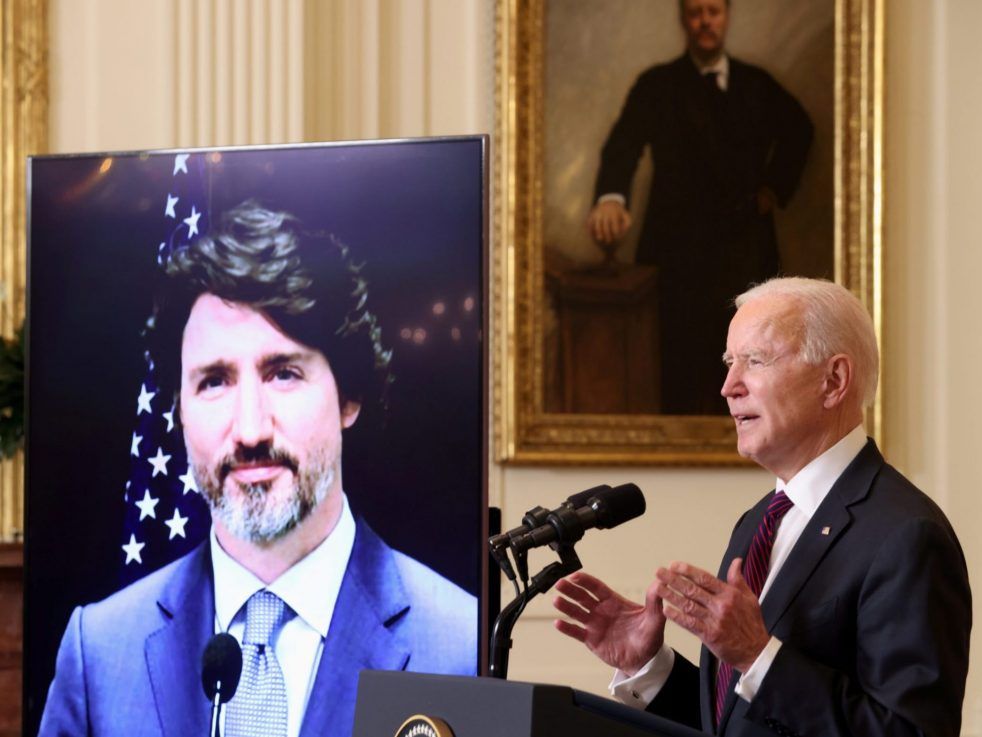Conservatives plan to introduce $20-per-tonne carbon price in climate plan
Author of the article:Canadian Press
Canadian Press
Publishing date:Apr 15, 2021 • 9 hours ago • 2 minute read • 80 Comments
Conservative Party leader Erin O'Toole responds to the government's fiscal update, the Fall Economic Statement 2020, in the House of Commons, in Ottawa, Nov. 30, 2020.
Conservative Party leader Erin O'Toole responds to the government's fiscal update, the Fall Economic Statement 2020, in the House of Commons, in Ottawa, Nov. 30, 2020. PHOTO BY BLAIR GABLE /REUTERS / FILES
Article content
OTTAWA — Conservative Leader Erin O’Toole is pitching a $20-per-tonne carbon price for consumers in his party’s $5-billion plan to tackle climate change.
The move represents a major policy shift for the party, which has long campaigned to scrap the carbon price introduced by the Liberals under Prime Minister Justin Trudeau.
The 15-page document, obtained by The Canadian Press, is set to be announced by O’Toole later this morning and outlines how carbon pricing would work under the Conservatives.
It says the price would start at $20 per tonne and rise to no higher than $50 per tonne.
The party, which did not immediately respond to requests for comment, says its system would be more affordable than what’s currently in place, and it would work with provinces to create a “Personal Low Carbon Savings Account.”
The plan says Canadians would pay into their account each time they buy hydrocarbon-based fuel, and then use that money to pay for products to help them live a “greener life,” like a bike or bus pass.
Advertisement
STORY CONTINUES BELOW
This advertisement has not loaded yet, but your article continues below.
Article content
It says the accounts would be managed by companies similar to how a debit-card system works.
“Even at this lower carbon price, we will ensure that this does not place an excessive burden on low-income Canadians and will protect farmers by ensuring that they have affordable options,” the plan reads.
The Liberal plan — applicable only in provinces that do not have their own carbon pricing scheme — sets the price at $40 per tonne, rising each year until it reaches $170 per tonne by 2030.
The federal government’s plan could raise prices at the pump by nearly 28 per cent over a decade, officials said in December.
The Conservative plan also aims to “go big” on zero-emissions vehicles by requiring 30 per cent of light-duty vehicles — cars, SUVs, pickup trucks — sold to be pollutant-free by 2030.
Other planks include proposing lower North America-wide industrial emissions standards to the Biden administration in the U.S., improving fuel regulations to make burning gasoline cleaner and investing $3 billion over 10 years in “natural climate solutions” that focus on forests, farming and wetlands.
A tax credit to incentivize use of carbon-capture technology also factors in.
“While electric vehicles are quickly growing in popularity, the truth is that the world will still be burning oil and gas for decades to come,” states the Conservative plan, dubbed “Secure the Environment.”
In December, the Liberal government released a $15-billion plan to meet its climate change commitments that includes steady increases to the carbon tax.
It also pledges money to encourage heavy industry to reduce its emissions, for communities to make buildings more energy efficient and for remote communities to get off diesel-generated power.
The aim is a 32 per cent reduction in emissions by 2030, slightly more than Canada’s 30 per cent Paris agreement commitment. Ottawa hopes to reach 40 per cent reductions when provincial programs are layered on.
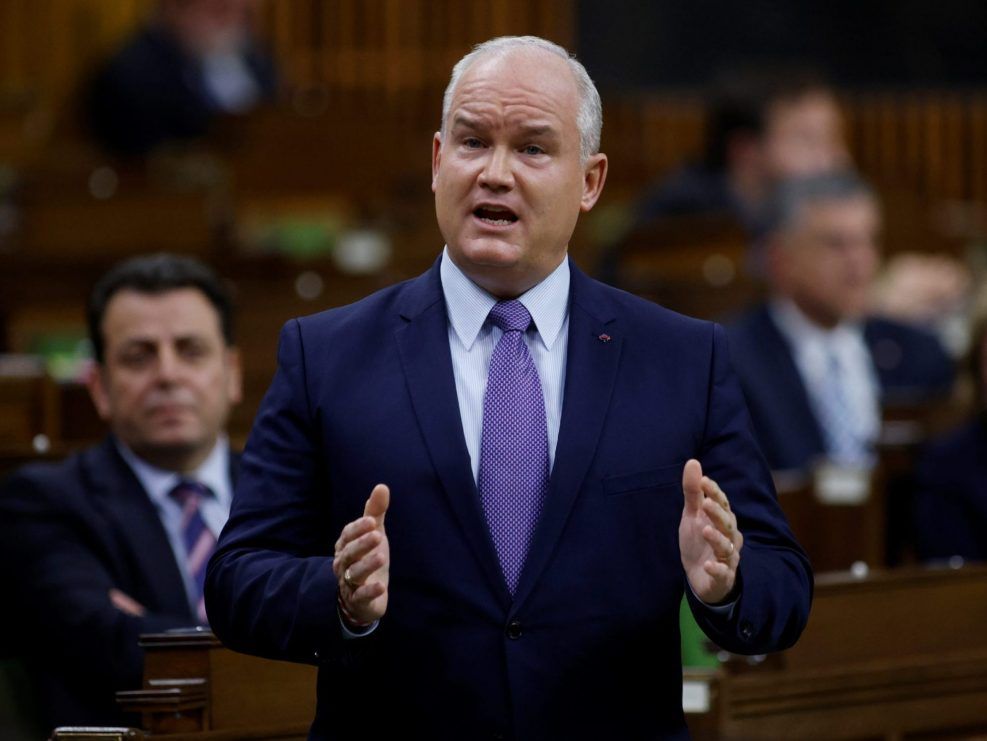
 torontosun.com
torontosun.com
Author of the article:Canadian Press
Canadian Press
Publishing date:Apr 15, 2021 • 9 hours ago • 2 minute read • 80 Comments
Conservative Party leader Erin O'Toole responds to the government's fiscal update, the Fall Economic Statement 2020, in the House of Commons, in Ottawa, Nov. 30, 2020.
Conservative Party leader Erin O'Toole responds to the government's fiscal update, the Fall Economic Statement 2020, in the House of Commons, in Ottawa, Nov. 30, 2020. PHOTO BY BLAIR GABLE /REUTERS / FILES
Article content
OTTAWA — Conservative Leader Erin O’Toole is pitching a $20-per-tonne carbon price for consumers in his party’s $5-billion plan to tackle climate change.
The move represents a major policy shift for the party, which has long campaigned to scrap the carbon price introduced by the Liberals under Prime Minister Justin Trudeau.
The 15-page document, obtained by The Canadian Press, is set to be announced by O’Toole later this morning and outlines how carbon pricing would work under the Conservatives.
It says the price would start at $20 per tonne and rise to no higher than $50 per tonne.
The party, which did not immediately respond to requests for comment, says its system would be more affordable than what’s currently in place, and it would work with provinces to create a “Personal Low Carbon Savings Account.”
The plan says Canadians would pay into their account each time they buy hydrocarbon-based fuel, and then use that money to pay for products to help them live a “greener life,” like a bike or bus pass.
Advertisement
STORY CONTINUES BELOW
This advertisement has not loaded yet, but your article continues below.
Article content
It says the accounts would be managed by companies similar to how a debit-card system works.
“Even at this lower carbon price, we will ensure that this does not place an excessive burden on low-income Canadians and will protect farmers by ensuring that they have affordable options,” the plan reads.
The Liberal plan — applicable only in provinces that do not have their own carbon pricing scheme — sets the price at $40 per tonne, rising each year until it reaches $170 per tonne by 2030.
The federal government’s plan could raise prices at the pump by nearly 28 per cent over a decade, officials said in December.
The Conservative plan also aims to “go big” on zero-emissions vehicles by requiring 30 per cent of light-duty vehicles — cars, SUVs, pickup trucks — sold to be pollutant-free by 2030.
Other planks include proposing lower North America-wide industrial emissions standards to the Biden administration in the U.S., improving fuel regulations to make burning gasoline cleaner and investing $3 billion over 10 years in “natural climate solutions” that focus on forests, farming and wetlands.
A tax credit to incentivize use of carbon-capture technology also factors in.
“While electric vehicles are quickly growing in popularity, the truth is that the world will still be burning oil and gas for decades to come,” states the Conservative plan, dubbed “Secure the Environment.”
In December, the Liberal government released a $15-billion plan to meet its climate change commitments that includes steady increases to the carbon tax.
It also pledges money to encourage heavy industry to reduce its emissions, for communities to make buildings more energy efficient and for remote communities to get off diesel-generated power.
The aim is a 32 per cent reduction in emissions by 2030, slightly more than Canada’s 30 per cent Paris agreement commitment. Ottawa hopes to reach 40 per cent reductions when provincial programs are layered on.

Conservatives plan to introduce $20-per-tonne carbon price in climate plan
OTTAWA — Conservative Leader Erin O’Toole is pitching a $20-per-tonne carbon price for consumers in his party’s $5-billion plan to tackle climate change.
